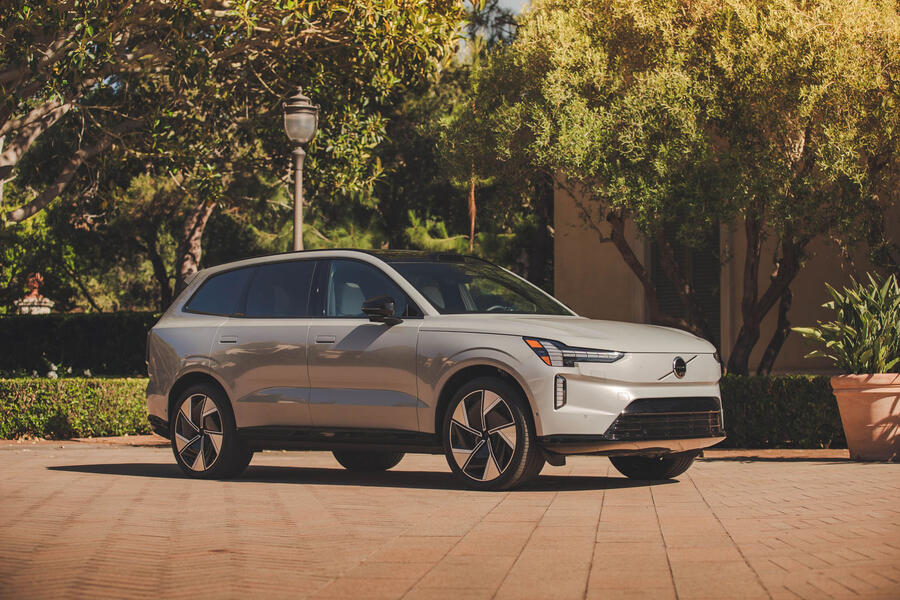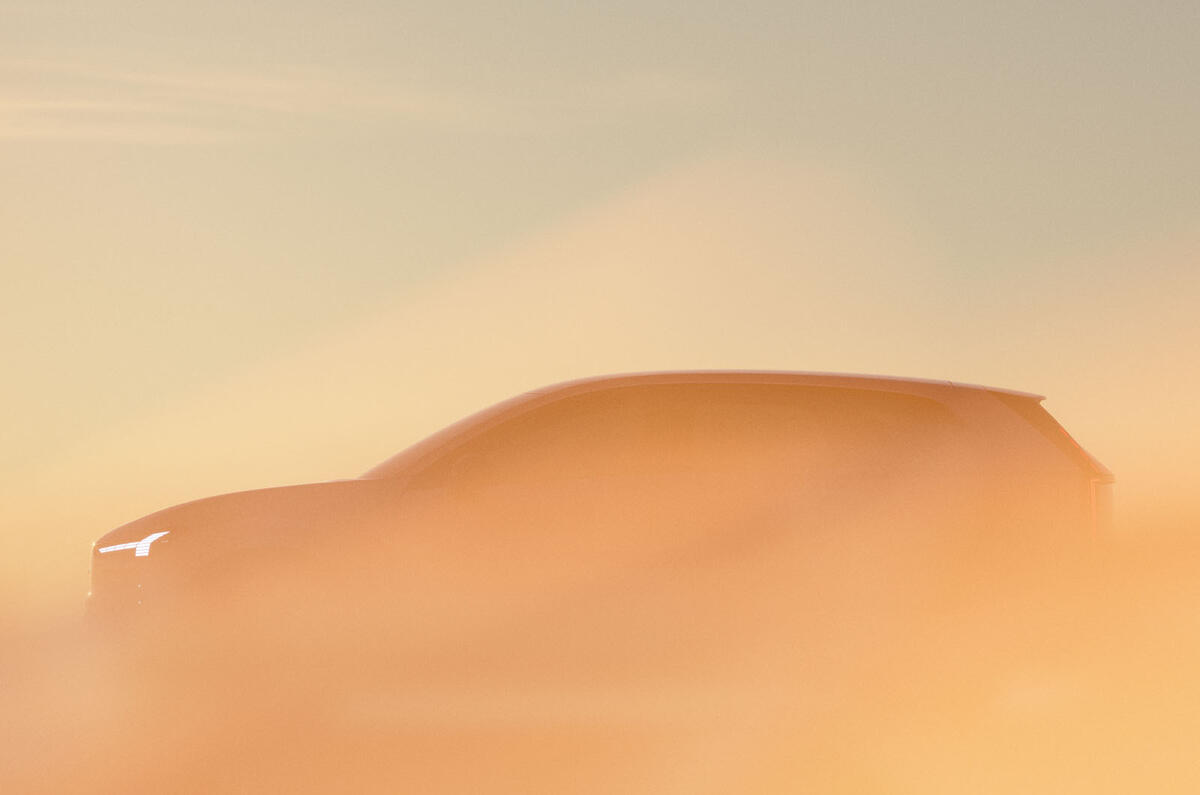Volvo will increase its use of shared hardware from across the Geely group as it embarks on a drive to cut costs and boost profit margins with future EVs.
The company has announced plans to work towards an operating margin of 8% – a substantial increase on last year's 5.6% – as part of a wide-reaching strategy overhaul that revolves around growing its market share and increasing its EV mix.
Volvo has already announced 3000 job cuts as part of a landmark £1.4 billion savings drive and now says it will look to leverage its position as part of the Geely group to reduce costs and boost efficiencies in the development of future products – a move that will result in "intensified joint hardware sourcing in collaboration with Geely".
The company's R&D boss, Anders Bell, explained the move to Autocar: "Geely has become a powerhouse, primarily in China, that we can benefit more from than we have been able to historically," which is important as "scale, synergies and sharing" have become so integral to profitability in today's automotive environment.
Bell stopped short of naming any specific opportunities for Volvo to share hardware with its Geely siblings – including Polestar, Lotus, LEVC, Lynk&Co and the eponymous Geely brand – but said: "We welcome finding partners and finding synergies on non-product differentiating areas."
However, he added, this push for synergies will not come at the expense of Volvo's unique positioning and the company will work to ensure its cars remain obviously distinct from those of its siblings.
He said: "There is always this balance of uniqueness and being true to the brand and being true to our customers – we will never give up on that – but also finding collaborations.
"The engineering aspects that made us survive for the last 100 years we need to protect for the next 100 years. That's pretty straightforward: beautiful, Scandinavian design; reliable; high-tech but in a human-centric way. This is still going to be the recipe for successful Volvo cars."
Bell said the new Volvo EX60 – the first car to use the company's new SPA3 modular architecture – will exemplify this ethos, showcasing "the perfect marriage between electromechanical power, electronics and software" - the last of those being especially important in the context of Volvo's push to be a manufacturer of "fully software-defined vehicles".
He acknowledged the firm's recent struggles in this area, with the EX90 flagship SUV recently subject to a significant round of over-the-air tech updates to address a number of high-profile glitches and bugs in Volvo's new software stack.









Join the debate
Add your comment
It can only be good news from my prespective. When looking to change my car a few months back, I visited a Volvo dealership and yes on the surface, the car looked premium. But then take something like the XC60 with it's new larger infotainment screen. You place your mobile phone on the charger underneath, press Android Auto after you start driving, and you're met with a message " please connect USB cable ". What? In a near £60k car with the salesman just having said the infotainment is run by Google's latest software, it needs a USB connection in 2025?
So where is this USB port? That's located some distance away under the drivers armrest. At least the USB is located next to infortainment where the phone sits in the XC40, but again it asks you to connect a cable for Android Auto. Want to play music off your USB stick? It wouldn't play the files that my current Skoda can play without issue. Worst of all, their PHEV EV range was rubbish compared to the competition.
Their cars are looking so long in the tooth now any sort of component sharing should be seen as hugely positive.